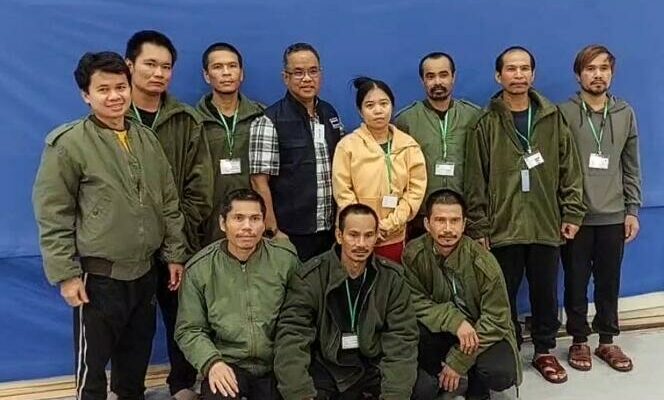The release of ten Thai hostages on Friday, November 24, as part of the four-day truce agreed between Israel and Hamas, crowns a month of frenetic diplomatic activity on the part of a country that wants to be neutral and friend to all. but which is little invested in the Middle East. Srettha Thavisin’s government only took office at the end of August, and the hostage crisis was its baptism of fire. Thirty-nine Thais died from Hamas bullets on October 7. Twenty others remain captive in Gaza to this day. All were among 30,000 Thai farm workers employed on Israeli kibbutzim under an agreement between the two countries.
The vast majority of them come from Isan, the large poor region in the northeast of the country which happens to be the stronghold of Pheu Thai (“Party for the Thais”), the party of the former prime minister Thaksin Shinawatra, who took the lead in the coalition formed following the May 14 elections.
Mr. Thavisin’s government immediately assigned the new President of the Assembly, Wan Muhamad Noor Matha, “Wan Noor”, a Muslim politician who has long represented the southern provinces, populated mainly by Thai-Malays, Sunnis, to this issue. like him, and a close ally of Pheu Thai. Wan Noor activated his networks, particularly in Malaysia, where Hamas has a presence.
Saiyid Sulaiman Husaini, the influential leader of a Thai Shiite association, then organized the trip to Tehran on October 27 of Wan Noor’s advisors. Iran is the main political and financial supporter of Hamas in the Middle East. On this occasion, the emissaries of the President of the Assembly received assurances from representatives of Hamas that the Thai hostages would be released as soon as Israel agreed to a truce.
After this first breakthrough, Thai Foreign Minister Parnpree Bahiddha-Nukara, also Deputy Prime Minister, visited Qatar on October 31. There, in addition to his Qatari counterpart, he met the Iranian Minister of Foreign Affairs, Hossein Amir Abdollahian, who provided him with “the full support of Iran”.
The next day, the head of Thai diplomacy made a stop in Cairo to ensure Egypt’s cooperation. Consultations continued until the last minute. On Thursday, November 23, Wan Nor welcomed Iranian Deputy Foreign Minister Ali Bagheri Kani to Bangkok to once again discuss the hostage issue. Friday evening, upon the arrival of the former Thai hostages in Israel, where they will remain for forty-eight hours under medical supervision, Bangkok expressed its thanks to “all those to whom [la Thaïlande] asked for help, namely the governments of Qatar, Israel, Egypt, Iran, Malaysia and the International Committee of the Red Cross ».
